AudioCulture
The noisy library of New Zealand music
Te pātaka korihi o ngā puoro o Aotearoa
David Kilgour
aka David Kilgour and The Heavy Eights
There’s barely been a time in the last 30 years when his music wasn’t being heard. He tours regularly, solo and with the Heavy Eights or The Clean, and every few years, a new album drops with a brilliant song or two out front to point the way: ‘You Forget’ on Here Come The Cars, ‘No No No’ from Sugarmouth, ‘Diamond Mine’ from Left By Soft, ‘Christopher Columbus’ and ‘Comin’ On’ from End Times Undone.
Then there’s the odds and sods collection First Steps and False Alarms (1995), David Kilgour and the Heavy Eights (1997), mid-career highpoint, A Feather In The Engine (2001), the Nashville-captured Frozen Orange (2004), and its 2007 successor, The Far Now.
Add a series of fascinating collaborations and there you have it, one of the most consistent and enduring bodies of work that has been released in punk’s long New Zealand wake.
There’s a freshness in his music, a curious knowing that draws you in and lifts you up.
There’s a freshness in his music, a curious knowing that draws you in and lifts you up, as his many fans in New Zealand, Australia, United States, Europe and the UK already know.
Onstage, David Kilgour is rarely disappointing, no matter who is up there beside him, pulling startling folk notes, left-field rock sounds and effortless grooves from the white Ibanez and other unique guitars that rarely leave his hands.
David Kilgour the man is less known. He’s from South Island farming stock and has lived in Dunedin since the mid-1970s. He surfs, he paints and he gardens in his non-music downtime. In 2001 he was awarded a rare national honour, the New Zealand Order Of Merit for services to music and culture, which was accepted by Kilgour with a typical lack of fuss or pretence. He wondered why his bandmates from The Clean, brother Hamish Kilgour and Robert Scott weren’t there beside him.
“It’s always nice to get a slap on the back,” he said of the Order of Merit in February 2008. “You know, my mother was extremely pleased. It was funny, a few musicians that I never hear from out-of-the-blue wrote me and said that’s great. I think that some musicians felt that it was nice to see the government say, ‘Well done’. In a way, it was a slap on the back for everybody.”
If you want to know more about the man, you’ll find him more readily through his lyrics and the personal and world-view that has slipped out in interviews over the years. There he is often candid, and occasionally intriguingly oblique, but always honest and wise, as only a man who has followed his own course in life can be.
Splash Your Jewels
None of the above-mentioned career high points seemed at all apparent or inevitable in Auckland’s inner city pub venue The Gluepot in November 1990, as David Kilgour and band (The Strangeloves’ Noel Ward and Taane Tokona) kicked into ‘You Forget’, the lead single from 1992’s Here Come The Cars.
The crowd quickly flooded in and swarmed the dance floor. The venue was nearly sold out, something the best Dunedin groups did with ease in the early 1990s.
“We’re fussy, us Southerners, believe it or not,” Kilgour says, pausing to tune up between songs. He broke at least three strings that evening, trying the patience of the DJ struggling to fill the gaps for student radio station bFM, which broadcast the show live on air.
Then it’s into ‘Sometimes’, sporting yet another deceptively simple but effective lyric (“I just can’t feel what I want to feel now”) with not a word wasted. ‘Spin You Round’ walks the same track.
“Here’s our token punk rocker,” says Kilgour, beginning ‘Kills All My Fun’. He’s never been anything but a punk at heart. He made the music he wanted to make and said the words he wanted to say, both in song and interviews.
‘What You Should Be Now’ still asks as many questions of Kilgour just as it did on The Great Unwashed’s 1983 album Clean Out Of Our Minds.
David Kilgour had finally found another rhythm section able to provide the relentless melodic beat he needs.
‘Splash Your Jewels’ is a melodic folk rocker and yet another small gem on Here Come The Cars. When the guitar breaks down and drops out toward the song’s end, it leaves only the drums and bass. David Kilgour had finally found another rhythm section able to provide the relentless melodic beat he needs, leaving him free to follow the feel.
‘Duane Eddy’, probably the best song Hamish Kilgour has written, makes a surprising appearance and sounds just like The Great Unwashed’s version from Singles.
It’s quarter to one already and ‘Here Come The Cars’, with its Eno-ish intent and clipped lyric, pops out. David Kilgour later told media that Eno was a big influence on The Clean, and that NZ rock writers never picked up on it (have a listen to The Clean’s ‘Odditty’).
‘Little Audrey’ came next. It was a standout song for his late 1980s group Stephen, a trio with a harder sound than his past groups, with bassist Alf Danielson (Goblin Mix) and drummer Geoff Hoani. Stephen supported PiL and Sonic Youth in New Zealand and made one quality EP, Dumb.
Originally formed on a “casual and relaxed basis” and named Chums in 1986, they were briefly called Seedcake and Spiritual Gas Station, before settling on Stephen. Support slots before Look Blue Go Purple and other Dunedin shows followed in early and mid-1987. Out of town spots at Old Star Tavern in Christchurch in September and an omnibus outing of the rising wave of Dunedin groups back home in Dunedin in October found them close to the new swell of late 1980s southern musical activity.
There were more live appearances in late 1988 and early 1989 at Dunedin’s European Hotel, and in August 1989 at the Savoy Ballroom with The 3Ds, Buster and Cyclops. On September 2, 1989, Stephen were on before John Lydon’s PiL at the Powerstation in Auckland.
The six-song Dumb EP finally appeared in 1990, after being recorded in Auckland during November 1989. Two songs stood out. “Little Audrey’ and ‘Don’t Know Why’ had a sound that was noticeably harder and more rock than popular era The Clean or Great Unwashed. Stephen Kilroy then joined the core trio on second guitar for live shows and a series of recordings that were collected and released alongside Dumb as Radar of Small Dogs in 1993.
Here Come The Cars
When Stephen finally went their separate ways in mid-1990, David Kilgour decided he needed to be free of regular bands and their demands. From then on he cast a wider net for collaborators and avoided set group line-ups.
He’d already released a sketchbook of the way forward in 1989 on the David tape that came free with the first issue of Dunedin fanzine, Alley Oop. There you’ll find a Stephen song (‘Tape Machine’), future compilation strays like ‘One Chord’, ‘The Blue’ from The Clean’s Vehicle and ‘Kills All My Fun’, ‘Spins You Round’ and ‘Here Come The Cars’, which also appeared as the title track on his first solo album in 1992.
Drummer Taane Tokona and bassist Noel Ward became Kilgour’s offsiders for many years.
Stepping out fresh as David Kilgour in 1990, the guitarist and singer had two members of third wave Flying Nun band The Strangeloves backing him. Drummer Taane Tokona and bassist Noel Ward became Kilgour’s offsiders for many years.
But for now, both groups were out playing the main centres, including Christchurch’s Zetland in July 1990 and Wellington’s Carpark in August. They were in Wellington that month to record The Strangeloves’ first and only album at Writhe Studios with David Kilgour producing.
Hamish Kilgour had recorded The Strangeloves’ first single in 1987, the shambolic and joyous ‘When Judy Gets Out’. His younger brother now added another minor classic in ‘John Lennon’, the flipside of the lead single from the new album. A student orientation show with The Strangeloves followed in Christchurch in early March 1991.
David Kilgour and his new rhythm section returned to Writhe Studios in June 1991 to record the diverse collection of songs that would make up Here Come The Cars. They saw 1991 out at Christchurch’s Dux De Lux with The Renderers, before heading north to Auckland in January 1992 for a show at The Powerstation with Tall Dwarfs. Over the following month, David Kilgour performed with Snapper at the Crown Hotel and the University of Otago.
Here Come The Cars appeared in April 1992 and was released in Australia and New Zealand, where it gathered enthusiastic reviews. It peaked at No.35 on the NZ Album Chart during a respectable six-week stay.
“Like Chilton without Big Star, or Kuepper without The Saints or even Stamey minus The DBs, Kilgour has made a successful and moving transition to solo status,” George Kay wrote in RipItUp, cutting to the essence of the album’s cultural importance. David Kilgour had finally stepped out of the shadow of one of NZ’s most important bands.
The guitarist jokingly referred to the new record as his “1970s soft rock record”, telling RipItUp, “The album is quite sweet, but aspects of it are dark, especially the lyrics.” With the summery pop of ‘You Forget’ leading the way, a fresh wave of enthusiasm for his work gripped the public, the media and Kilgour himself.
Stuart Page’s frequently shown video of ‘You Forget’ re-contextualised Dunedin-ite Kilgour on Auckland’s Waitematā Harbour and its surrounds, capturing the odd sneakered, dark shaded Kilgour on the bow of a speeding boat in what looks like high summer.
A national tour in April and early May 1992 chased the record in Christchurch, Dunedin, Invercargill, Wellington and Auckland. The following month, David Kilgour was out on tour with frequent visitor Billy Bragg (and the Red Stars) taking in all the main centres. When The Nixons visited Dunedin mid-month, he was there on the bill as well.
Talking to journalist Lindsay Davis (Ballon D’Essai’s first guitarist) for a revealing feature in a short-lived Christchurch listings magazine, Kilgour reflected on the live experience. “It’s the adrenaline you get from performing that wakes you up and helps find a few drops of inspiration; you’re always searching for some sort of spark.”
Walking on New Brighton beach near Christchurch, he revealed, “I’m still a mad surfer. Hamish [Kilgour] and I sold our boards years ago when punk first hit and bought guitars. I started up again about four years ago. It keeps me fit, keeps the middle age spread down and I love it.” Taane Tokona joined him in that pursuit on tour.
There are prescient hints in the interview of the path David Kilgour will tread in later years. “There is no future here in New Zealand to make money out of music. But it is possible if you can take yourself around the world and get your records out and make yourself known, then you can scratch a living out of it. But using New Zealand as a base.” The success of The Chills and Straitjacket Fits and timely reminders from old friend Martin Phillipps were spurring him on.
Back home in New Zealand, David Kilgour was well and truly back in the wider public eye for the first time since the mid-1980s.
Later that month, Kilgour was in New York City, where his brother Hamish now lived, appearing at CMJ’s New Music Seminar and playing shows with The 3Ds at historic punk venue CBGB.
Back home in New Zealand, David Kilgour was well and truly back in the wider public eye for the first time since the mid-1980s, appearing on kids’ TV shows Yahoo! and What Now, judging the Operation Music Storm ’92 band contest in Dunedin, and contributing the soundtrack to Glenn Standring’s first short film Zerographic, while producing art for Flying Nun record store displays in Australia.
In June 1993, American indie act Pavement hit New Zealand for a nationwide tour that featured The 3Ds with David Kilgour and The Zub in support at Sammy’s in Dunedin.
David Kilgour’s old friend Peter Gutteridge was seeing a fair bit of him as well. Kilgour had joined Gutteridge’s Snapper for live shows and the group’s ‘Gentle Hour’ b/w ‘Vader’, one of the finest Flying Nun singles, which reveals the sweet and sour magic of this renewed combination.
Next up was Pop Art Toasters with Martin Phillipps, Mike Dooley, Noel Ward and Alan Starrett, who took on the garage and folk punk sounds important to both Phillipps and Kilgour. Live shows and a spot-on CD EP of 1960s era covers, released in 1994, showed the success of this new engagement. Phillipps and Kilgour went one better and took on Love’s debut album track, ‘Message To Pretty’, for an Arthur Lee tribute album on Alias Records. Less interesting is ‘Waterloo’, his contribution (as Cloth) to Abbasalutely, the Flying Nun Records ABBA tribute record.
Sugarmouth
In May 1994, David Kilgour’s second solo album, Sugarmouth, climbed to No.45 on the New Zealand Album Chart. With help from Writhe Studios’ Nick Roughan, bass player Noel Ward and drummers Brian Donnelly and James Stephenson, it’s a confident record that was also released in England and the United States.
Heralded by the sparkling and infectious ‘No No No’, Kilgour’s new record was lauded by Billboard magazine. But what should have been a breakthrough album stalled.
With James Stephenson drumming, Kilgour and Noel Ward toured the United States (with Pavement) and Europe in support of the album, but not before David Kilgour and the newly named Best Minds checked into Dunedin's trusty old Empire Tavern with Sandra Bell.
It was three more years before a new David Kilgour record appeared, although a collection called First Steps and False Alarms was released through US indie label Ajax Records in 1995, featuring demo recordings from 1987 to 1992.
In March 1996, David Kilgour was onstage at Dunedin’s Regent Theatre with the Finn Brothers and Bic Runga. It was a stage not unfamiliar to the Split Enz alumni, or to the younger Kilgour, although his view was more often from the audience.
“I saw Lou Reed play live post-Rock n Roll Animal, the tour right after it. He came to Dunedin twice,” he told The Phoenix’s Jonathan Perry in February 2008. “The thing about New Zealand in the 1970s and early 1980s was that everybody came and played. I saw so many people play as a kid in my town, from Lou Reed to Chuck Berry to Graham Parker and the Rumour. There was early Talking Heads, The Cure, it’s hard to believe, but it’s actually true. I saw so much music.”
A new, self-titled album by David Kilgour and the Heavy Eights arrived in 1997. With Robert Key (The Cakekitchen, The Sombretones and The Expendables) drumming, Noel Ward on bass and with help from Thomas Bell, Barbara Manning, Alan Haig, and Greg Johnson, the Nick Roughan produced LP is Kilgour’s most overlooked record. Highpoints include ‘Chop Me In ½’ and ‘Seeming Stranded’.
In 1999, David Kilgour was one of the New Zealand contributors to Barbara Manning’s In New Zealand, providing guitar or piano on three songs.
Kilgour toured the United States in early 2000 with his friends Yo La Tengo.
Kilgour toured the United States in early 2000 with his friends Yo La Tengo. Reflecting on the collaboration in 2008, Kilgour said, “It’s a lot harder playing somebody else’s music, and that was a great challenge for me, and I knew it would be to do those shows, but I like to put myself in those situations. We only had like five days of rehearsal, though we knew what songs we were going to do many months before the tour, so it’s not like we were getting up on stage without knowing the songs. But it was a really great challenge for me, and I did push the envelope of my playing ability. I learned a lot from doing that tour. It’s one of the interesting experiences I’ve had actually. It was grand. Kinda stressful, but really satisfying.”
Cracks In The Sidewalk
The first decade of the new millennium was David Kilgour’s decade. While many of his contemporaries foundered and lost their way, Kilgour stepped out onto the international stage, made two of his best solo records and wrote many more enduring songs. He capped the run off with a generation-spanning collaboration with one of New Zealand’s leading poets Sam Hunt in 2008. Then there were The Clean releases of the time – Getaway, Syd's Pink Wiring System, their 2003 double-disc Anthology, Mashed and Mister Pop, with the trio’s trans-national tours dotting what was a busy, busy decade for Kilgour.
He returned to backyard shed recording with 2002’s A Feather In The Engine, although this time he managed to cram parts of Fish Street’s 24-track studio in there. Nick Roughan travelled south from Wellington to help produce the album.
“The whole LP is coming from different areas, like 4-tracks, 16-tracks, and 24-tracks, and some of it I wrote just 20 minutes before I recorded it, so there’s a freshness to the tracks. A lot of it was recorded as soon as I wrote it. So I thought, this is a good demo, I’ll fix all this up and use some studio over-dubs, but at the end of the day I didn’t, and I decided to just go for it.”
With Flying Nun Records on the out with New Zealand indie fans, Kilgour turned to Dunedin’s Arclife label for local release. A by-product of the successful community-centred Arc Café (founded in 135 High Street in June 1997), Arclife was a lifeline for many older Dunedin musicians looking for an outlet. Two Kilgour associates, Stephen Kilroy and Thomas Bell, were actively involved in the small venue. Merge Records, who knew a fine record when they heard one, picked the LP for American and European release, beginning a long and fruitful relationship.
A Feather In The Engine was a strong and consistent record and remains a fan favourite.
A Feather In The Engine was a strong and consistent record and remains a fan favourite with standout songs including ‘Today Is Gonna Be Mine’ and The Verlaines-ish ‘All The Best’ onboard. Noel Ward is there on bass for two songs. The record also features the beginnings of Kilgour’s steady backing band, the Heavy Eights, with Thomas Bell contributing strongly and Taane Tokona back on the drum stool. Greg Cairns adds drums to one song, while Graeme Downes arranged a four-piece string section for ‘Instra 2 Reprise’. Kilgour then gathered up seven demo tracks for the 2002 CD EP Cracks In The Sidewalk for his second Arclife release. Songs from A Feather In The Engine would later be the soundtrack on the 2003 Dunedin student life documentary A Flock of Students, produced by Colin Hogg.
Far Off Town
On tour in the United States in 2002, David Kilgour met up and performed with members of the Lambchop collective of Nashville musicians. He returned to Nashville in 2004 to record a new album, Frozen Orange, with them and maverick producer Mark Nevers. Creative New Zealand chipped in $6000.
Recorded with Mark Nevers using Matt Swanson (bass), Sam Baker (drums), William Tyler (guitar) and Tony Crow on keyboards, Frozen Orange isn’t the strongest of Kilgour’s solo records. A lot of the space inherent in Kilgour’s songs has been lost. Sebadoh’s Jason Loewenstein sat in on two tracks, and two songs recorded in Dunedin with the Heavy Eights (Tony De Raad, Alan Haig and Thomas Bell) round out the album. Released in the USA on Merge, Frozen Orange was picked up in New Zealand by Arch Hill, who proved to be as steady a partner as Kilgour’s US label.
He was back in the United States for a performance at Merge Records’ 15th-anniversary show, backed by Ira Kaplan and Georgia Hubley from Yo La Tengo and Lambchop members in North Carolina in May, and returned for a 12-date run on Yo La Tengo’s US tour in October.
Back home, he could be found onstage with Pine and Tall Dwarf Alec Bathgate in Lyttelton in December 2004. The following year Kilgour opened for Lampchop in March 2005 in Auckland and Wellington, and Nick Cave and The Bad Seeds in May. US alt-country staple Howie Gelb joined him in Auckland and Dunedin for shows in September. The same month, Kilgour was back in Auckland for a concert with SJD, who had sampled The Clean’s ‘Point That Thing’ for ‘From A To B’ on his 2004 album Southern Lights.
In 2006, the self-effacing Kilgour was the subject of Bridget Sutherland’s documentary Far Off Town: Dunedin to Nashville, which traced the recording of the Dunedin musician’s Frozen Orange, in Nashville in 2004.
“I've always been a fan of country music. It probably came from The Rolling Stones. I really love their country stuff and then we (with brother Hamish) discovered Gram Parsons and also I’m a big Dylan freak. It’s definitely come out in the last few years. Maybe it’s got something to do with getting older,” he told Richard Langston in 1992 for issue three of Dunedin fanzine Side On.
The Far Now
With the Heavy Eights (Taane Tokona, Alan Haig, Tom Bell and Tony De Raad) now installed as Kilgour’s semi-permanent backing band, recordings began in Dunedin in winter 2004 for what would become The Far Now album. ‘BBC World’, written with guitarist De Raad, is Kilgour at his accessible and pop.
Over the next two years he pulled together a consistent collection of songs in his wooden shed backyard studio (including the swelling psychedelia of ‘Sun Of God’ and reflective ‘Wave of Love’), and at Studio One in Albany Street with Tom Bell producing and Alan Starrett contributing viola and violin.
The Far Now is the record where David Kilgour more fully realises the possibilities of his Nashville excursion.
The Far Now is the record where David Kilgour more fully realises the possibilities of his Nashville excursion. He turns his hand to filmic sounds and Nick Drake-style acoustic melancholia (‘I Cut My Heart Out Once’) on what may well be his most varied album so far.
The new album was released in 2007 in the USA and Europe by Merge Records, and by Arch Hill in Australasia. The down under edition came with a compilation of tracks from his two previous records dubbed Orange Feathers.
Auckland’s annual music festival the Big Day Out found an afternoon spot for Kilgour and the Heavy Eights and his “stoner rock” in early February that year. Two months later he took his band on an Australasian tour in March. Elsewhere, David Kilgour was helping out as a mentor in the Ministry of Education’s Music Mentors in Schools programme.
In September 2007, he was on the road again, as part of an extensive small venue tour of New Zealand with White Swan Black Swan (Ben Howe and Sonya Waters). Barely a month later, David Kilgour and the Heavy Eights were in the USA, touring with Euro’s Child through Salt Lake City, Denver, Minneapolis, Chicago, Detroit, Cleveland, Brooklyn, Cambridge MA, Philadelphia, Washington, Durham NC, Atlanta and Nashville.
A revealing interview with Washington Post journalist David Malitz in early November 2007, found him in a reflective mood.
“Do you like coming to America to play?” Malitz asked. “How is it going from being a hometown hero to cult favourite?”
“I still see myself as an underground artist in New Zealand,” answered Kilgour, “so it ain’t a problem. I love coming to America, I get to see my brother and his family and catch up with all the lovely friends I've made here over the years.”
An intriguing and initially surprising collaboration with New Zealand poet Sam Hunt, Falling Debris, followed in 2008.
An intriguing and initially surprising collaboration with New Zealand poet Sam Hunt, Falling Debris, followed in 2008. Putting music to Hunt’s words was a bold move for two artists from different eras, but when it worked, as it does on ‘River Plateau Song’, the logic of the collaboration becomes clear. Both of them had popular appeal but retained an underground status. Both are big Dylan fans and both have a fluid musicality to their words. Hunt and Kilgour performed out together, including a Late at the Museum show at Auckland War Memorial Museum in November 2009.
In 2010, Falling Debris formed the soundtrack to Tim Rose and Jim Scott’s Sam Hunt documentary, Purple Balloons and Other Stories. Recording of a new Hunt/ Kilgour album has already begun.
End Times Undone
David Kilgour’s most recent solo album, Left By Soft, followed in 2011, heralded by the sublime ‘Diamond Mine’ and its equally memorable video, which references NZ art legends Len Lye and painter Colin McCahon. While not as strong as his previous records, the album still harbours some small gems, including ‘Pop Song’. Album track ‘Way Down Here’ was used in an episode of hit US TV show Sons Of Anarchy.
David Kilgour and the Heavy Eights (minus Alan Haig) joined the likes of the talented Ghost Wave in New Zealand to promote the album. Kilgour returned to the USA in August 2011 for a 10-date tour with Californian singer-songwriter Richard Buckner.
The following year, American label De Stijl Records exhumed Here Come The Cars for its first vinyl release. The bigger cover suits the record’s look, with David Kilgour looking like a long lost singer-songwriter.
In 2011, Kilgour kept himself busy contributing a version of Tall Dwarfs’ ‘Nothing’s Going To Happen’ to the Chris Knox fundraiser Stroke and a take on Guided By Voices’ ‘How Loft Am I’ for Sing For Your Meat, a Guided By Voices tribute album.
Those are just two of the large number of creative collaborations David Kilgour has been involved with over the years. He also contributed to ‘Harmonic Deluxe’ on Robert Scott’s The Creeping Unknown (2000), Charlie Louvin’s ‘My Long Journey Home’ on Charlie Louvin (2007) and Surf Friends’ ‘The Sea’ (2013).
Kilgour had already written music for Ann Dewey’s contemporary dance piece, Flicker, which was performed by Spinning Sun Dance Company and toured through New Zealand in 2008 and 2009. He added the soundtrack to Bridget Sutherland’s film about sculptor Anish Kapoor, Infinity on Trial - The Making of Dismemberment Site I, in 2013.
2013 also found him onstage at WOMAD in New Plymouth in March and playing in Dunedin, Christchurch and Wellington. He found the time that year to release a 7-inch single of ‘Christopher Columbus’ on Merge Records, backed with 'Shifting Sands'.
‘Christopher Columbus’ is one of the tracks from the End Times Undone album, released in August 2014. As is his habit, a memorable song slips out first, both online and on video – the country-tinged ‘Comin’ On’. In the lyrics of that track you’ll find as good a glimpse as any of Kilgour the man and his relationship to the music he makes:
I don’t know
Where it’s coming from
Streaming in
Streaming in
All the time
Streaming in.
Just when I thought I had it
So figured out
Sounded out
Rounded out
The muse comes knocking again.
Long may it. David Kilgour and the Heavy Eights appeared in July 2014 at Mergefest, Merge Records’ 25th anniversary shows in North Carolina and toured America’s West Coast.
In May 2015 David Kilgour and the Heavy Eights released another album with Sam Hunt, The 9th – and in 2019 they released Bobbie's A Girl (Merge), a new album comprising tracks recorded between 2015 and 2018.
Longtime drummer and surfing friend Taane Tokona died in January 2020, bringing to close an extraordinary 30-year musical collaboration.
In November 2020, as part of a Flying Nun catalogue digitising project at the Alexander Turnbull Library/ New Zealand National Library, a reissue of the classic Stephen EP/album Dumb/Radar of Small Dogs (1988/1993) was released on digital platforms, with a limited vinyl run issued on the Joyful Noise Recordings label.
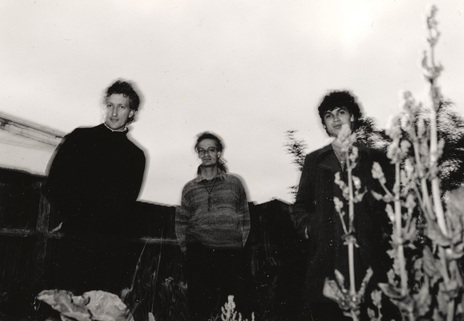
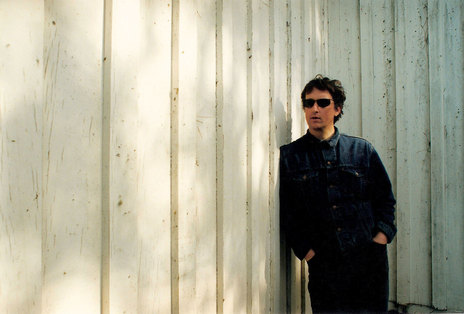
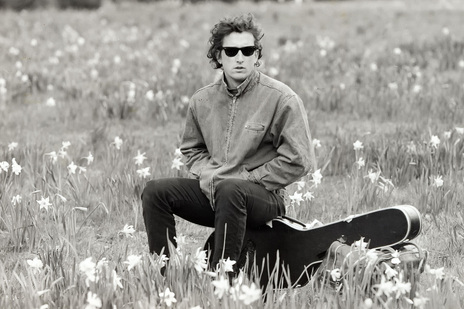
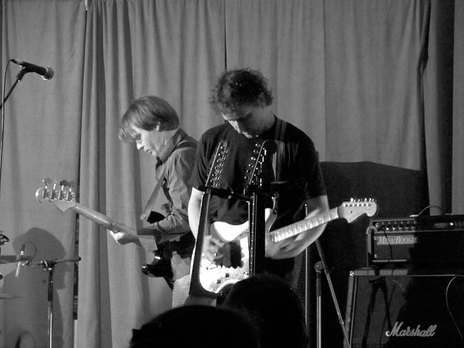
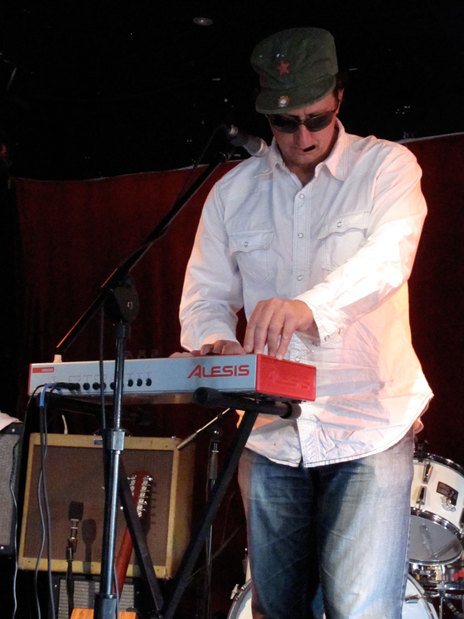
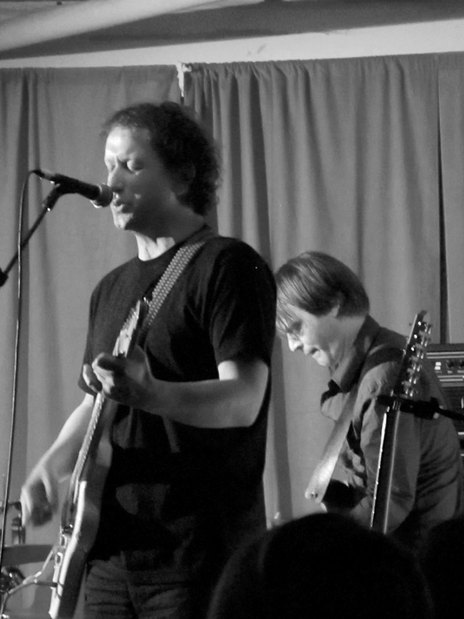
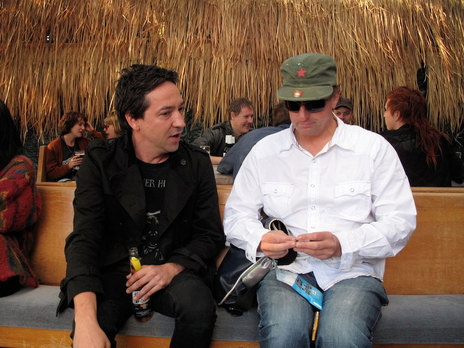
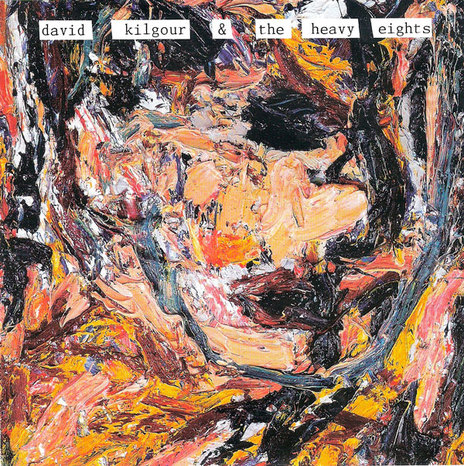
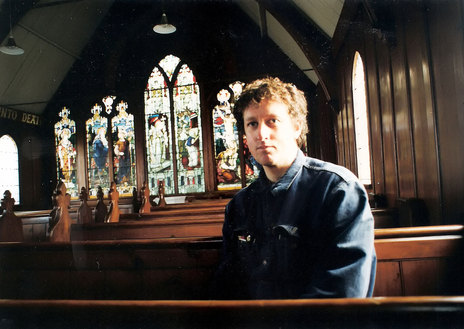
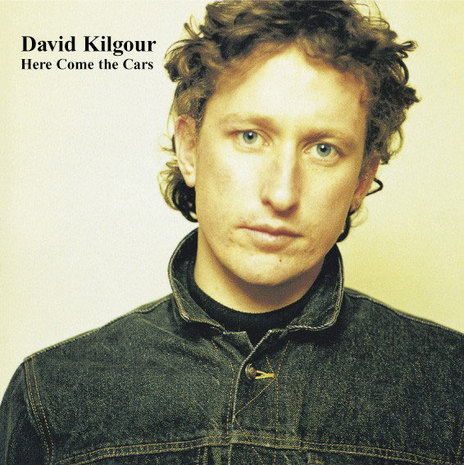
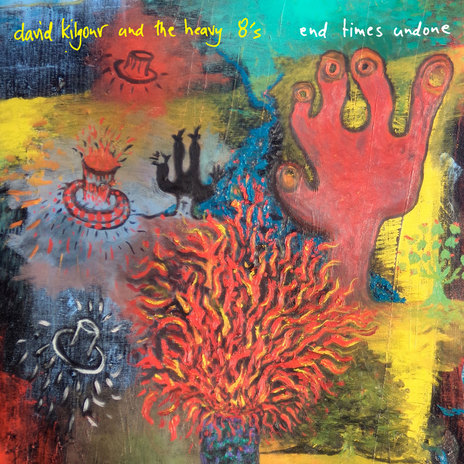
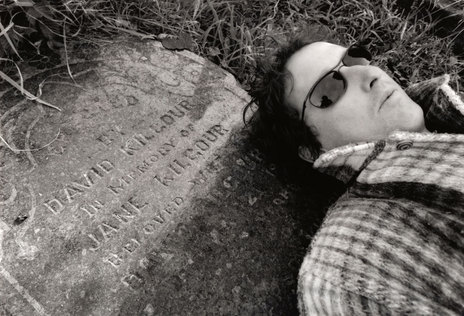
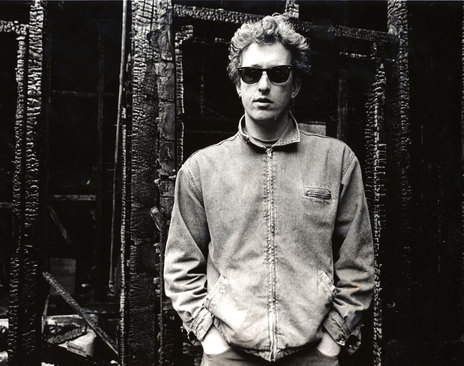
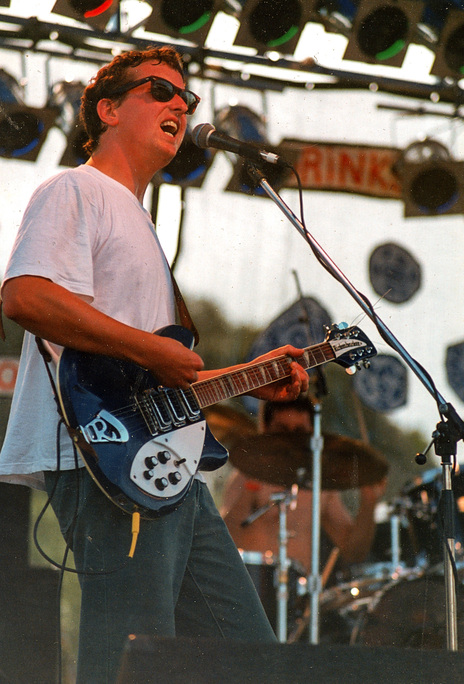
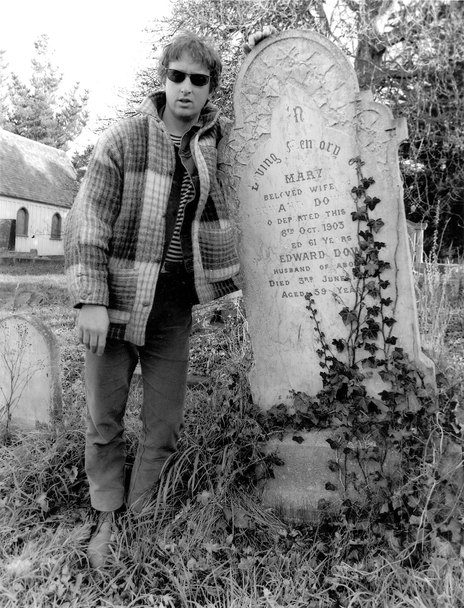
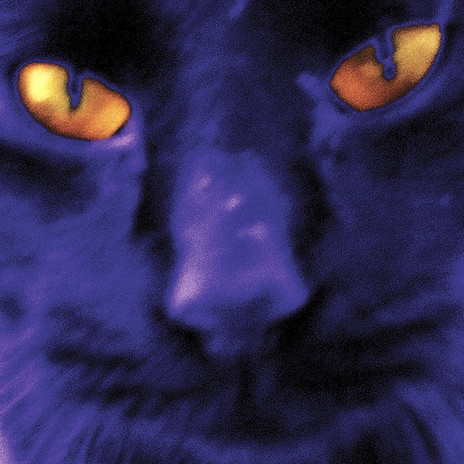
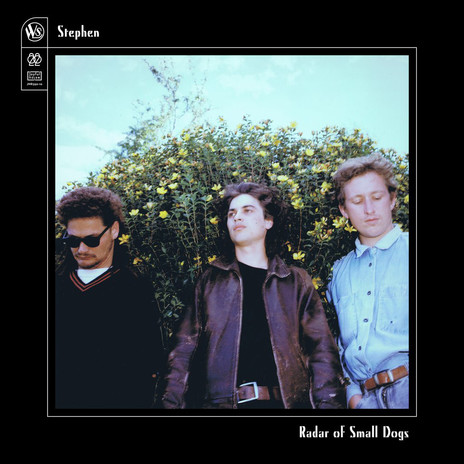
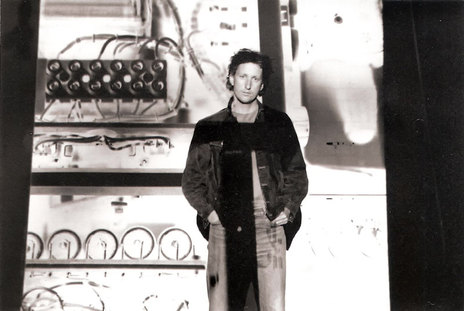
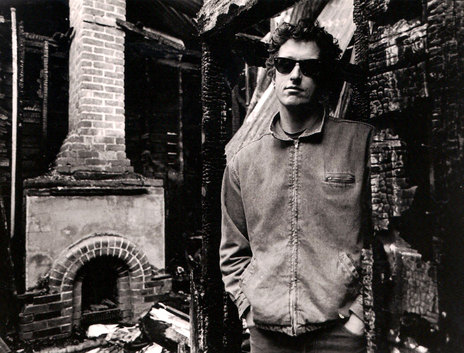
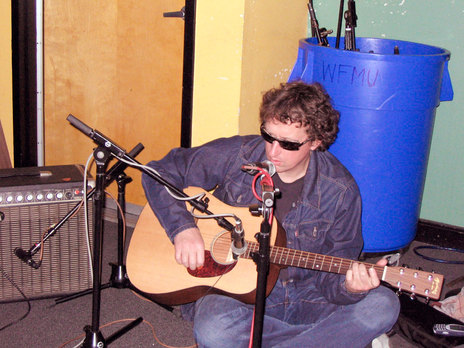
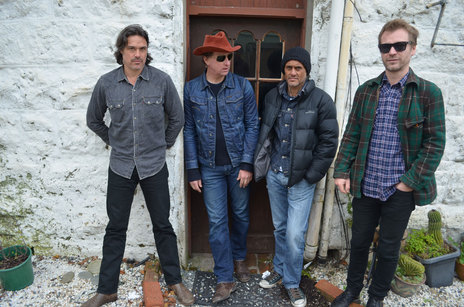
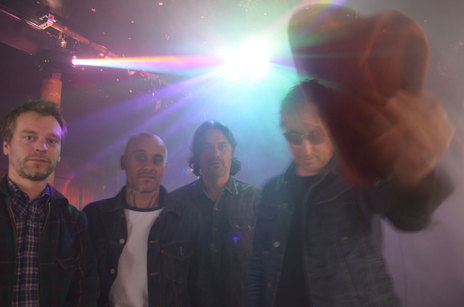
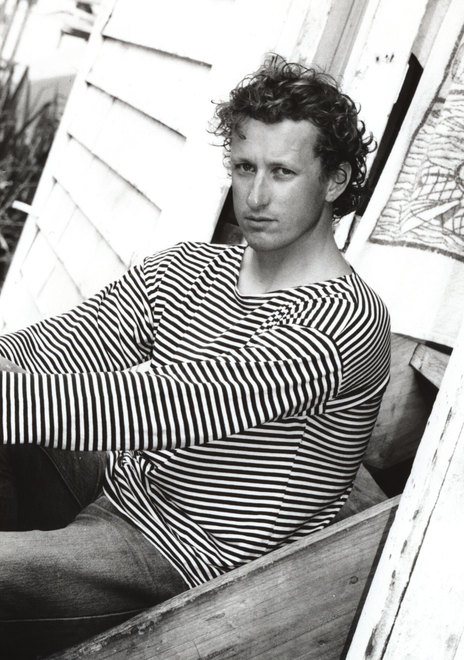
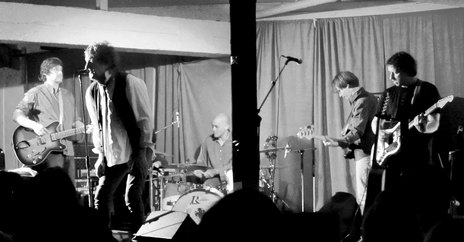
Sam Hunt: Purple Balloon featuring new music and interviews with David Kilgour
David Kilgour dipped back into rock’s rich catalogue covering songs by Love (Message To Pretty with Martin Phillipps, 1994), and The Who, The Squires and The (New Zealand) Avengers for an EP as Pop Art Toasters (1994).
Outside of The Clean and The Great Unwashed, David Kilgour's bands and solo career includes recording and/or performances under the following names: Chums, Seedcake, Spiritual Gas Station, Stephen, David Kilgour and The Strange, Cloth, David Kilgour and The Zub, David Kilgour and The Best Minds, David Kilgour and The Heavy Eights.
End Times Undone was pressed on random coloured vinyl. There was no way of finding out what colour you had until the seal was broken.
Visit our sister site
NZ On ScreenMade with funding from
NZ On Air











